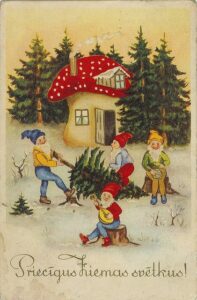Rocko Ride of Shame
For humiliation to work there must be witnesses. The act must have an audience. Humiliation in private doesn’t count. In my middle-school days (peak years for prize-winning humiliations), a group of us went to the State Fair. While we had to depend on the parents for transportation, I did not have to ask them for the money to pay the admission fee and incidentals. I was a paperboy at that time and could impress my girlfriend with my economic independence, money earned by the sweat of my brow.
As we strolled the Midway, my girlfriend and I indulged in a Cumulus cloud of pink cotton-candy, followed by the deep-fried goodness of a funnel cake. When the group spied the Rocko Ride, the girlfriend’s excitement was tangible. I approached the monster bravely concealing my trepidation. The steel cages were shaped like the old manual pencil sharpeners each one attached to a metal spoke similar to that of a Ferris Wheel. The cages were designed to flip end-over-end in mid-rotation.
My brave façade melted when the carney closed the top over our heads and gave a sinister chuckle. The first few revolutions were slow paced and I was lulled into thinking that I might be able to survive this experience. But then the carney kicked the machine into high gear and the cage suddenly flipped on its head. Gravity had failed and the axis on which our planet spins snapped in two.
“Please stop! Please stop! Let me get off! Please,” I begged, but with each lap the carney’s sinister grin widened further revealing a handful of stained teeth lodged inside the black hole of his mouth. This was the torturer’s glee during the Inquisition. He kept us inside the chamber for an eternity. During the long wait to be set free, I could not conceal the tremors in my body or the tears streaming from my eyes while my screeching pleas to stop the torture echoed inside the steel cage.
Once released from our confinement, I staggered past the line of people waiting their turn for medieval torment and lurched into the Midway just as the pink-colored and deep-fried barf spewed out of my mouth. The ride home in the car was long and quiet and the dissolution of the girlfriend/boyfriend relationship came within days; the message delivered by a snickering courier.
In the great scheme of things, my Rocko Ride was a low-profile mortification. By collecting the stories of my humiliations, I have discovered a meaningful link between living a well-rounded joyful life and the absurdity found in all of us. I can say with certainty that my absurd life moments provide entertaining stories at dinner parties.













